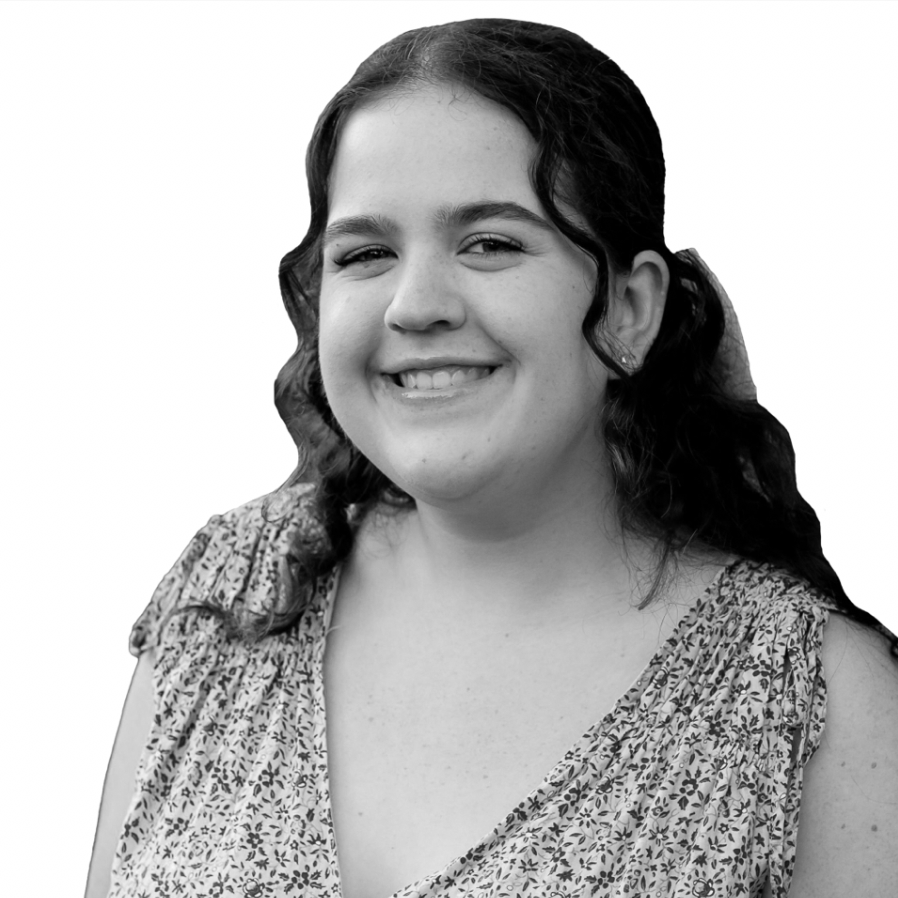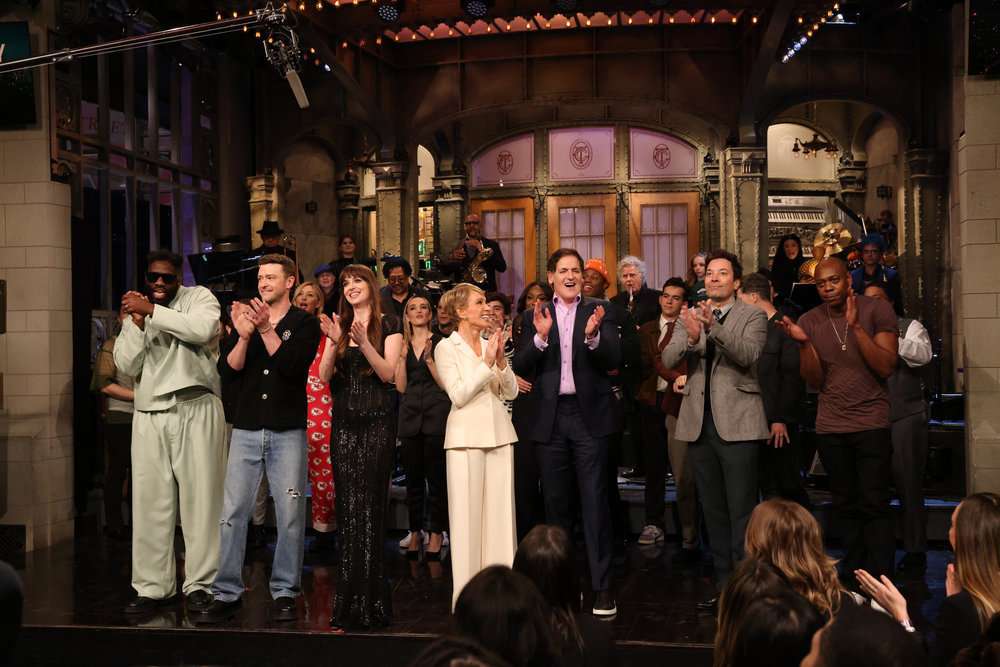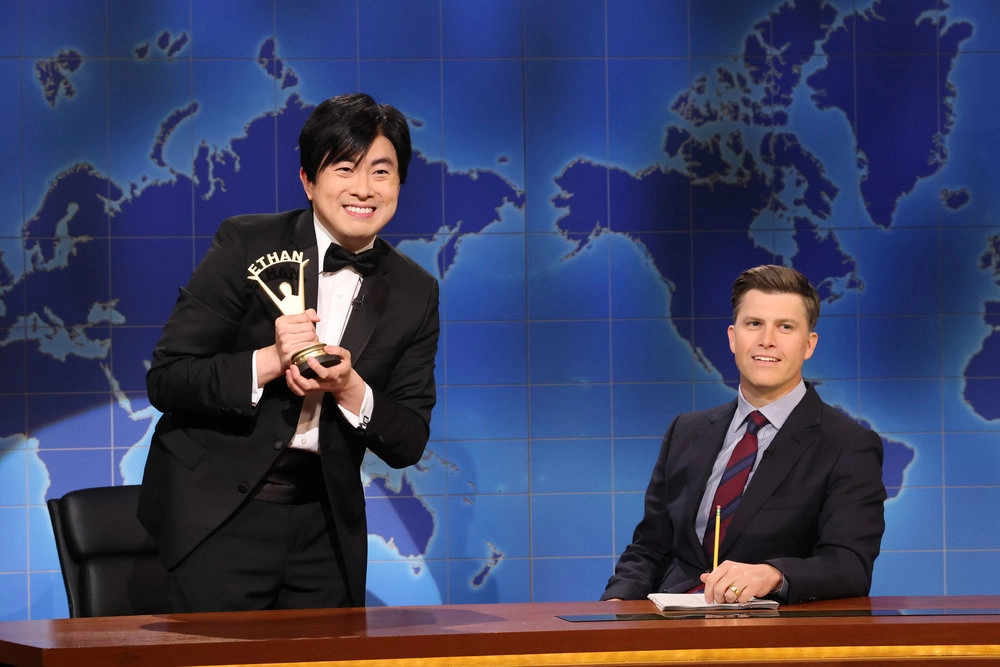COMIC RELIEF
Shane Gillis and the myth of cancellation
The once-canceled comedian is now set to host “Saturday Night Live” Feb. 24.
The once-canceled comedian is now set to host “Saturday Night Live” Feb. 24.


Content warning: This article contains references to transphobia, homophobia and the use of slurs.
D-list, red-pilled influencers exhausted the “cancel culture” conversation years ago. But with Shane Gillis set to host “Saturday Night Live” Feb. 24, the conversation must be brought up again.
“SNL” named Gillis as a new cast member for season 45 in 2019, along with now-veterans Bowen Yang and Chloe Fineman. It wasn’t long before Gillis’ previous work came to light, including a podcast appearance on “Matt and Shane’s Secret Podcast” where he used homophobic and anti-Asian slurs.
It’s not as though the infamous podcast appearance was ages ago: It was the year before he was hired. It wasn’t until public criticism that “SNL” Executive Producer Lorne Michaels announced through a spokesperson that Gillis would no longer be joining the cast.
“We want SNL to have a variety of voices and points of view within the show,” the statement read. “The language is offensive, hurtful and unacceptable. We are sorry we did not see these clips earlier, and that our vetting process was not up to standard.”
Yet, five seasons later, “SNL” is giving Gillis a platform. The comedian has received critical acclaim for his special, “Beautiful Dogs” (2023). Following its release, the show became the third-most-watched television program on Netflix that week. The special, however, was not for me.
Decider praised Gillis, writing in its review of “Beautiful Dogs,” “Whenever he makes jokes about race (such as his suggestion that White Americans stopped being cool when they first saw Jackie Robinson play for the Dodgers), or calls anything ‘gay’ or ‘[r-slur],’ he’s quick with a smile and an acknowledgment that he knows he’s transgressing.”
Acknowledgment and self-awareness are not free passes to say anything, and a well-received Netflix special does not equal exoneration. Gillis still said those slurs.
Michaels once claimed Gillis’ language was so offensive that “SNL” would not stand for it. Yet, now that Gillis has gained some more popularity, Michaels is willing to look the other way. Or maybe the producers believe the support from Gillis will be greater than the criticism previously held against him. The choice for Gillis to host proves the initial decision to fire him had nothing to do with the morals of the show, but was instead to look good for the public eye.

Most once-“canceled” comedians truly face no repercussions for their actions. Ricky Gervais, “canceled” for transphobia, continued to spew nonsense in the Netflix stand-up special “Armageddon” (2023), which is probably the laziest written special of all time. It drags on and on about his “cancellation,” adding nothing of nuance. Gervais, despite supposedly losing his career to “woke” people, is able to put minimal effort in. And he won a Golden Globe for it.
People can pretend it is only alt-right, red-pilled fans who continue to enjoy Gervais’ work, but his big win last year demonstrates there truly is a lack of care and consequences in the comedy industry. If anything, calling out his problematic behavior has only heightened his career.
Similarly, Dave Chappelle, also “canceled” for transphobia, won a Grammy Sunday for “What’s in a Name?” (2022). Back in 2021, Netflix employees staged a protest against the company for Chappelle’s Netflix special, “The Closer” (2021).
Following the controversy, Netflix made a statement, reading it “recognize[s] we have much more work to do both within Netflix and in our content.” Netflix released another Chappelle special — “The Dreamer” (2023) — in which he again continues his inane obsession with transgender people.
Every time a discussion is started about hateful language and rhetoric in comedy, it feels like any positive changes made end up regressing.
“SNL” still only has one Asian American cast member. Even though Gillis was “canceled” for using anti-Asian slurs, “SNL” has now chosen to support Gillis.
Similarly, “SNL” hired Molly Kearney in 2022, making them the first and only nonbinary cast member and the first non-cisgender cast member. Though Chappelle was “canceled” for transphobia, the show still gave him a cameo this season.
Despite small progress, the show still makes excuses for hate and its efforts for diversity, equity and inclusion are not enough.
Consequences do not exist for hateful language in comedy: the rhetoric is consistently written off as a joke. But there is still intentionality behind a joke. There are still people deeply affected and hurt by the language and content of the so-called “jokes.”
Comedy is being used as a crutch to be hateful. Pretending “cancel culture” exists is an insult to all those still treated as a punching bag for lazy comedians.
Kimberly Aguirre is a junior writing about comedy. Her column, “Comic Relief,” runs every other Thursday. She is also an associate managing editor at the Daily Trojan.
We are the only independent newspaper here at USC, run at every level by students. That means we aren’t tied down by any other interests but those of readers like you: the students, faculty, staff and South Central residents that together make up the USC community.
Independence is a double-edged sword: We have a unique lens into the University’s actions and policies, and can hold powerful figures accountable when others cannot. But that also means our budget is severely limited. We’re already spread thin as we compensate the writers, photographers, artists, designers and editors whose incredible work you see in our daily paper; as we work to revamp and expand our digital presence, we now have additional staff making podcasts, videos, webpages, our first ever magazine and social media content, who are at risk of being unable to receive the support they deserve.
We are therefore indebted to readers like you, who, by supporting us, help keep our paper daily (we are the only remaining college paper on the West Coast that prints every single weekday), independent, free and widely accessible.
Please consider supporting us. Even $1 goes a long way in supporting our work; if you are able, you can also support us with monthly, or even annual, donations. Thank you.
This site uses cookies. By continuing to browse the site, you are agreeing to our use of cookies.
Accept settingsDo Not AcceptWe may request cookies to be set on your device. We use cookies to let us know when you visit our websites, how you interact with us, to enrich your user experience, and to customize your relationship with our website.
Click on the different category headings to find out more. You can also change some of your preferences. Note that blocking some types of cookies may impact your experience on our websites and the services we are able to offer.
These cookies are strictly necessary to provide you with services available through our website and to use some of its features.
Because these cookies are strictly necessary to deliver the website, refusing them will have impact how our site functions. You always can block or delete cookies by changing your browser settings and force blocking all cookies on this website. But this will always prompt you to accept/refuse cookies when revisiting our site.
We fully respect if you want to refuse cookies but to avoid asking you again and again kindly allow us to store a cookie for that. You are free to opt out any time or opt in for other cookies to get a better experience. If you refuse cookies we will remove all set cookies in our domain.
We provide you with a list of stored cookies on your computer in our domain so you can check what we stored. Due to security reasons we are not able to show or modify cookies from other domains. You can check these in your browser security settings.
These cookies collect information that is used either in aggregate form to help us understand how our website is being used or how effective our marketing campaigns are, or to help us customize our website and application for you in order to enhance your experience.
If you do not want that we track your visit to our site you can disable tracking in your browser here:
We also use different external services like Google Webfonts, Google Maps, and external Video providers. Since these providers may collect personal data like your IP address we allow you to block them here. Please be aware that this might heavily reduce the functionality and appearance of our site. Changes will take effect once you reload the page.
Google Webfont Settings:
Google Map Settings:
Google reCaptcha Settings:
Vimeo and Youtube video embeds:
The following cookies are also needed - You can choose if you want to allow them:
